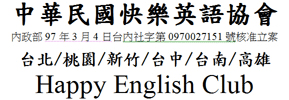Some Chinese terms are just...VERY CHINESE. Do we have to translate all these "VERY CHINESE TERMS" into English for English conversation? Doubt it.
Here are tons of them, "店店吃三碗公" "你皮在癢" "挫勒等" "金小掰" "要挫起來" "衝三小?" "去蘇州賣鴨蛋" "眉角" "拉滴賽" "ㄘ牙裂嘴" "嘴臉" "頭好壯壯" "菊花台" "不遠千里" "聲東擊西" "一洩千里"..... endless and countless. Help me out, if you're really really interested.
"Mother tongue interfereence" is a frequent mention by linguists. Language leaners often times cannot but try to do instant conversions from their mother tongues to a new language. We feel totally uncomfortable, out of water, uneasy not to do so.^^
While some community members try to give smart translations of「博感情」「犯賤」「抓猴」..., Jerry is thinking about something else, although I can't provide a proper equivalent to each Chinese term asked.
Why don't we look at these Chinese terms in everyday contexts or in sentences before we provide English equivalents??
Ironically, we almost always try to learn, or encourage others to learn how to use an English word/phrase in example sentences. That's where good dictionaries with lots of example sentences come in. nevertheless we don't even think of doing that for Chinese words/phrases. Bummer!!
Memorizing a certain word/phrase alone could wind up not knowing how to use it, or lost in what you're talking about.
According to all those great messages posted, some of them are believed to be English teachers, English elites...to write something like that, but none of them follow the language ABC--looking at a word/phrase in a context, even though it's Chinese. Just because it's Chinese doesn't mean we don't have to look at a term in a context/sentence.
English elites give out translations lacking in language ABC, what about followers?
Even if learners got smart translations, can they use them in a context next time when they need to?
Even if it's shuffled in a sentence, can native speakers have a clue??
What if they don't? Aren't we gonna talk a blue streak explaining what we were trying to say???
Take my word for it,
"Those who are familiar with their own native language have blind spots, let alone non-native speakers."
>
>
>
>
初級程度者 可點中文翻譯>
http://blog.xuite.net/jerry25084266/playground/10144912







